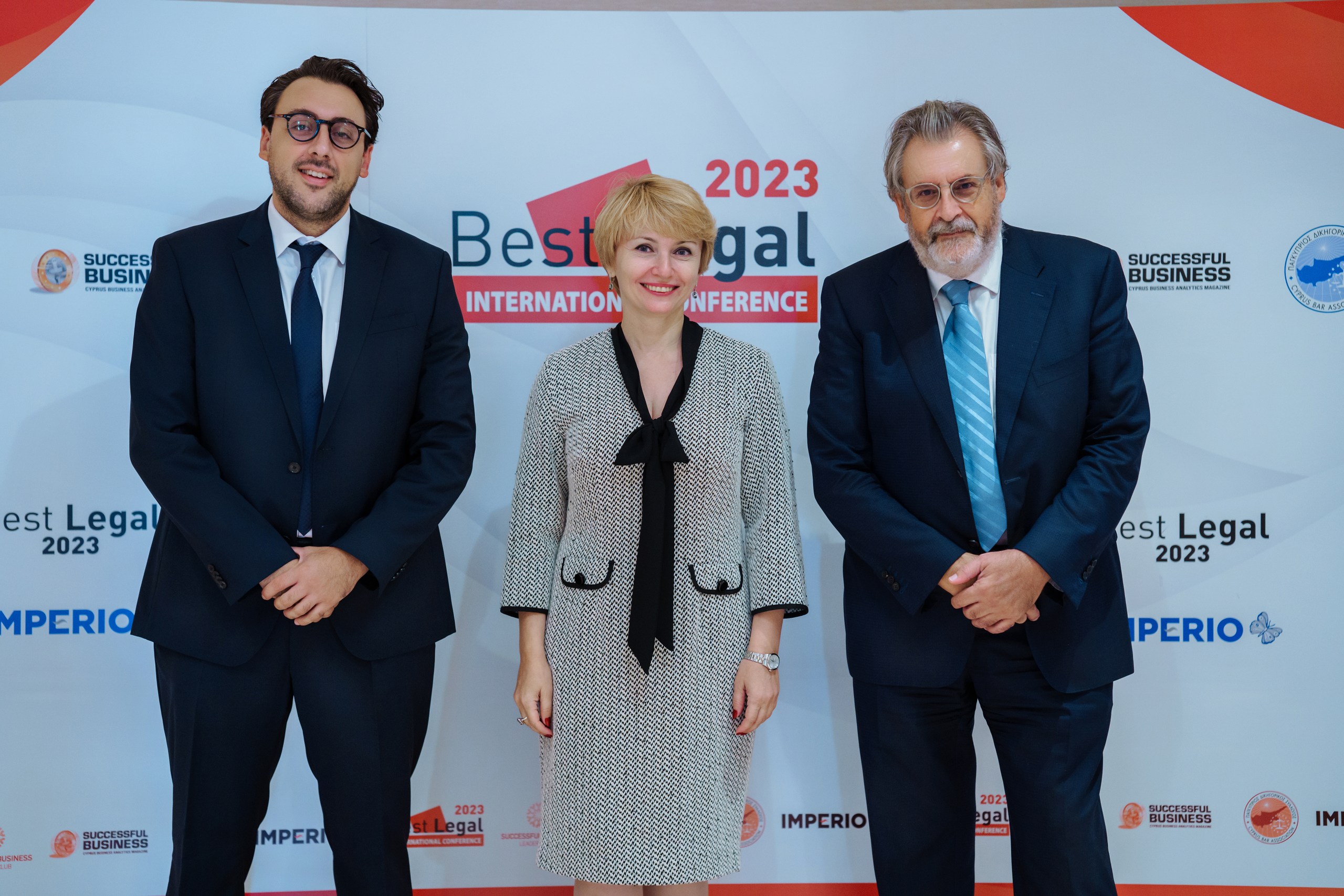The opportunities and threats brought by artificial intelligence and language models have a significant impact on legal practice even today. However, experts predict that in just two years, their influence will be felt much more strongly, and those who are not yet working with modern technologies may become uncompetitive. The various aspects and new practices of lawyers in the context of digitalization became the main topics of the annual Best Legal Conference.
On September 28th, during the ninth Best Legal Conference in Limassol, leaders of law firms, international business executives, modern technology experts, tech company founders, lawyers, and managers from the professional services sector gathered to discuss vital issues.
The main topics of the event included innovations in legislation, the digitalization of the legal field, the technological evolution of the legal business, and the challenges posed by the development of technologies and the use of artificial intelligence. Additionally, speakers touched on the topic of legal regulation of AI use and the European AI Act project. The conference was organized by the business magazine "Successful Business." and supported by Imperio Group.
Reconsideration of Cyprus Legal System
The conference began with an address by Christos Clerides, the Chairman of the Cyprus Bar Association. He discussed the "legal renaissance" that Cyprus embarked upon at the beginning of the 21st century – a reconsideration and overhaul of the country's legal system, aimed at adapting to modern challenges. Clerides placed special emphasis on the creation of new jurisdictional structures, the establishment of the Commercial Court based on the Irish model, and the revitalization of the Admiralty Court. The latter had enjoyed significant success in the 70s and 80s but subsequently lost its prominence. One reason for this decline was the obligatory use of the Greek language. However, with amendments made to the Constitution, allowing English to be used in legal proceedings, it can potentially regain its appeal among foreign litigants. At the conclusion of his address, Dr. Clerides drew the audience's attention to two notable extradition cases from Cyprus and encouraged all lawyers, unfamiliar with this matter, to examine these cases.
Alternative Dispute Resolution
Subsequently, conference participants discussed how digitisation is reforming methods of alternative dispute resolution (ADR) and enhancing conflict resolution processes in the digital age. The initial two panel discussions of the conference were moderated by Professor Stephanie Laulhe Shaelou, Professor of European Law and Reform, Head, School of Law, UCLan Cyprus.
Constantinos Clerides, a partner at Phoebus, Christos Clerides & Associates LLC, elaborated on the mechanisms of ADR in Cyprus. He highlighted that the country has arbitration laws dating back to the 50s and 60s, as well as international arbitration rules for commercial disputes. The solicitor mentioned that there are several centres in Cyprus already offering support in matters of alternative dispute resolution. He also emphasised the significance of recent changes in the procedural rules of litigation in Cyprus, which encourage the use of ADR methods.
According to Clerides, the main reasons for opting for alternative methods of dispute resolution are the need for confidentiality, especially in the IT sector, and the possibility of selecting an expert to resolve the conflict. However, the primary reason is the lengthy duration of court proceedings. "When a client comes to me and asks whether they should go to court, I tell them that hearing a case in the civil court takes about seven years at first instance and another seven years at the appellate court. It becomes clear that the initial incentive is to avoid the court due to delays. If you turn to arbitration or mediation, you will certainly get a resolution within a year, or two at most," the solicitor explained.
Source: https://sb-cyprus.com/articles-english/7563-best-legal-conference-technology-for-legal-practice











